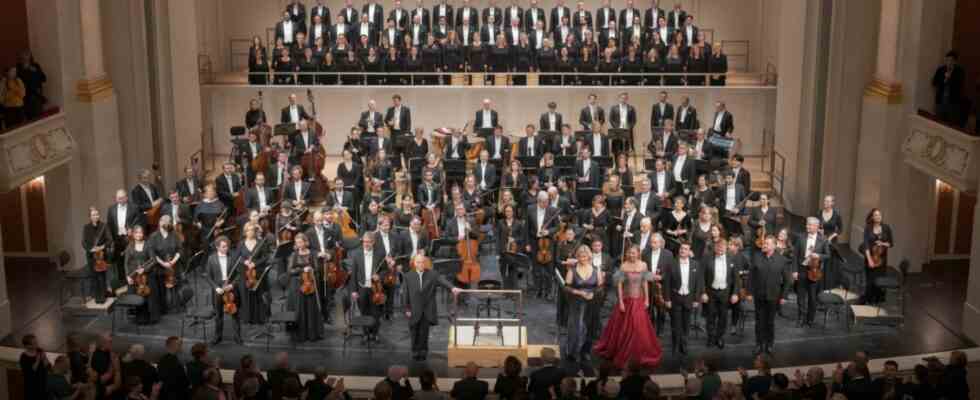The minute-long applause after the last bars of Beethoven’s Ninth Symphony obviously does Daniel Barenboim good. The audience in the sold-out hall of the Staatsoper Unter den Linden stands and cheers. But it is not the frenetic joy of the gods, drunk with fraternization, as one often experiences after Schiller’s gigantic choral finale of the Ninth. Because Barenboim’s view of this work, which to this day struggles with its message and yet in truth remains a mystery, is too personal, almost intimate, on this evening.
A serious neurological illness forced Barenboim to cancel his heart projects at the beginning of October. The concert for his eightieth birthday, at which he was supposed to perform as a pianist in the Berlin Philharmonic, had to be cancelled. Barenboim handed over the spectacular new “Ring” production at the Staatsoper, in which all parts of Wagner’s tetralogy were premiered within a little over a week, to Christian Thielemann and Thomas Guggeis. Thielemann also stepped in for the Staatskapelle’s Asian tour. With two concerts, on New Year’s Eve and on New Year’s Day, Barenboim has now returned to the podium for the first time.
He has become significantly slimmer and his steps appear cautious and fragile. He conducts while seated. But he still has the orchestra, with which he has been associated for 30 years, under control, even with the smallest of gestures. What is new, at least as far as this is concerned, is the tendency towards an internalization of expression, with which Barenboim now radically strips away everything external and inessential, not only in his conducting movements, but also in the music.
Barenboim discovers the doubting, searching and hopeless Beethoven
During the corona pandemic, Barenboim had once again dealt intensively with Beethoven from scratch. He discovered the piano sonatas in his most recent, already fifth complete recording, as works that functioned “like a kind of diary” for Beethoven. Here Beethoven was unreservedly open and expressed himself most naturally, he explained in an interview with the SZ in 2020. From this highly personal perspective, Barenboim is now looking at one of the works in music history that is most often overused for representational purposes. The choral finale in particular has been distorted in the course of countless performances at all kinds of ceremonies, even to the point of expressing totalitarian megalomania. Barenboim discovers the doubting, searching and unprotected hoping Beethoven behind the state-supporting facade.
It became audible how risky, fragmented and touchingly vulnerable the music of this symphony speaks to you when you don’t force it together in the direction of the proclamation of supposed certainties of salvation. The first movement rises out of a surreal, shimmering pianissimo fog, and Barenboim plays its secondary themes with a melancholic grace, as very tender memories like those from a Mahler symphony. Again and again in the scherzo of the second movement, the form is broken through as if from outside, as if the music wanted to free itself from its hermetic nature. In the detached singing of the adagio, which in the extremely stretched tempi that Barenboim chooses throughout the symphony sounds infinitely lonely, like an inner self-questioning, the double fanfare enters enigmatically and erratically like the admonishing finger of God.
And the finale unfolds a rugged landscape in which the shapely unity of form is constantly broken and questioned. Then the music begins to speak in instrumental recitatives, abruptly fades in memories of the previous movements, breaks off, starts again somewhere else, delays the flow through suddenly inserted bars and through gestures of hesitation, hesitation and groping. Wonderfully delicate, as a faint foreboding, the “joy” theme sounds on the cellos and double basses when it first appears. And in “Ode to Joy”, Barenboim also protects the chorus from degenerating into that mass-promotional, monochrome jubilation that has already gotten stuck in your ears. The fabulous solo quartet (Camilla Nylund, Marina Prudenskaya, Saimir Pirgu, René Pape) has all the possibilities of a nuanced composition.
Whether Barenboim is already beginning his farewell with these concerts depends on the further course of his illness, which is obviously difficult to predict. What can be said, however, is that he has reached a new level of artistic truthfulness. Because this ninth can also be heard as a political statement. State-supporting musical ceremonies no longer interest this artist.

